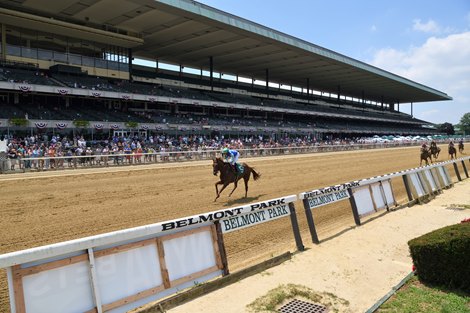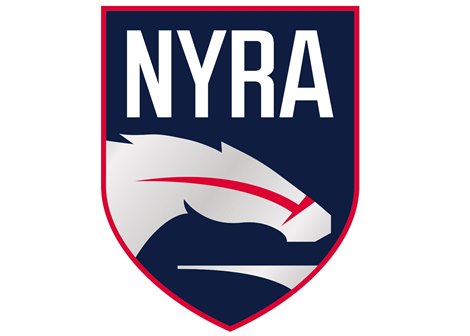A new audit by New York State’s chief fiscal watchdog says the New York Racing Association does not have adequate monitoring and oversight of its goods and services procurement procedures, leading to a lack of competition for NYRA contracts and potential overspending by the racing corporation.
NYRA, in a 15-page response that totaled half of the audit report released by state comptroller Thomas DiNapoli, disputed—point by point—the various allegations made by the audit, including even the time period of the financial review conducted by the state.
The audit, for instance, found that NYRA in a three year period used 302 separate “bid exemption memos” for $30.5 million in spending “with limited documentation as to why it was circumventing the bidding process that would have otherwise been required.” In the period examined, the audit said NYRA spent a total of $250.3 million on various goods and services.
The new audit by the state comptroller’s audit follows decades of financial criticism by the state’s fiscal watchdog agency of NYRA, which operates the tracks at Aqueduct Racetrack, Belmont Park, and Saratoga Race Course.
NYRA, which is overseen by a state financial monitoring panel, took a sharp approach in beating back the claims made in the new DiNapoli audit, using the term “misleading” on 28 separate occasions in its official response—contained within the audit’s release—that spanned 15 pages.
“Of primary concern is the repeated use of inflammatory, conclusion headings and non-sequitur statements that mislead the reader. We respectfully stress the importance of the (Office of State Comptroller) taking a discerning look at its language choices and the consequences that such language may have on the accuracy of its findings,” Renee Postel, NYRA’s senior vice president and chief financial officer wrote in NYRA’s official response to DiNapoli’s auditors.
The audit said NYRA’s procurement practices “deviated” from a NYRA manual that was approved in 2010 by the state’s Franchise Oversight Board, a panel created years ago to monitor the racing corporation’s finances. As a results, the audit said, “questionable awards” were given by NYRA, including one employee selecting his company for $250,000 worth of business with NYRA, as well as 15,298 transactions—under $1,000 each—with entities not on an approved vendors’ list and without NYRA’s purchasing department “questioning why the approved vendors could not supply the goods or services.”
It said weaknesses were found in NYRA’s purchasing system and processes, as well as a “lack of segregation of duties and a lack of risk assessment and analysis.” It said NYRA could not provide information about change orders for a construction contract, leaving auditors uncertain if the $787,517 additional charge was justified.
The audit called for a series of internal changes to “strengthen the integrity” of NYRA’s procurement process for goods and services.
In its response, NYRA said its procurement process undergoes “robust monitoring” both internally and by the state’s own Franchise Oversight Board, which was created the last time NYRA was awarded rights to operate the three Thoroughbred tracks in the state. It said the audit found only a handful of “isolated” incidents that auditors “subjectively” deemed to be potential problems. It said the audit “does not present facts” underlying the claim that NYRA’s procurement process fails to encourage competition in awarding of goods and services spending.
Auditors, in their own responses to NYRA’s official response, went tit-for-tat in disputing NYRA’s reasoning or claims to defend its procurement procedures.
NYRA noted that its state-approved procurement manual “expressly permits” the racing corporation to buy goods and services without bidding so long as specific criteria is met. It noted that no-bid spending over $50,000 are reported each month to the Franchise Oversight Board, and that NYRA must give the oversight panel 30 days’ advance notice for any no-bid procurement deal worth over $200,000.
In replying to NYRA’s response, auditors acknowledged no-bid spending is permitted, but that “they should be the exception.” It noted finding “several examples” where no-bid deals were given that did not meet the criteria contained in NYRA’s procurement manual.
NYRA criticized auditors for saying that the procurement manual should be updated; NYRA noted that it had already initiated a re-working of the manual and has been actively working with the Franchise Oversight Board on a revised procurement process document. NYRA said auditors “deliberately” ignored oral and written claims it made that the manual re-writing process had already been initiated.
NYRA then went point by point disputing claims by auditors, or saying their findings lacked context or were misleading. It noted that summary information was supplied about a construction contract’s change orders, though auditors said NYRA failed to provide the full list of documents sought. NYRA terms as “isolated” a 2019 incident in which an employee tapped his company for $200,000 in business with NYRA; the racing corporation said it “voluntarily disclosed” that the violation occurred and that “corrective action” was taken against individuals involved; it did provide additional details.
Auditors said they found a vendor awarded a $250,000 contract in 2018 despite not being the lowest bidder, though they said NYRA did not provide documents to justify a claim that the vendor was tapped because of its “responsiveness to time constraints and ability to secure and deliver the items.”
The audit said there was a “perception of favoritism” in some awards being given to “unqualified bidders, which it said “can discourage other vendors from submitting future bids as they might believe they do not have a fair chance at being awarded contracts.” It also criticized the use of petty cash systems by some NYRA departments.
The audit raised questions about everything from car wash purchases, gun range rentals and nearly $19,000 for vocal coaching for on-air broadcasters and the NYRA president; NYRA defended the vocal coaching as a business decision that came in 2018 when the Belmont Stakes had the potential for a Triple Crown winner.
The audit said NYRA used a “sole source exception” for a “specific artist” to perform at the 2019 Belmont Stakes for a total of $160,000 and offered “no explanation” why less expensive artists were not used. Hip-hop artist Flo Rida was hired by NYRA to perform at that year’s Belmont Stakes.
Patrick McKenna, a NYRA spokesman, said the racing corporation has worked with the state comptroller’s office over many months “to support an informative and transparent audit process.”
McKenna said NYRA “engages in responsible spending practices and works diligently to adhere to our internal purchasing and procurement practices” and that the corporation is on sound financial footing “because of a prudent and conservative approach to budgeting and planning, and nothing in the (state comptroller’s) report would dispute that.”

Racing at Belmont Park


